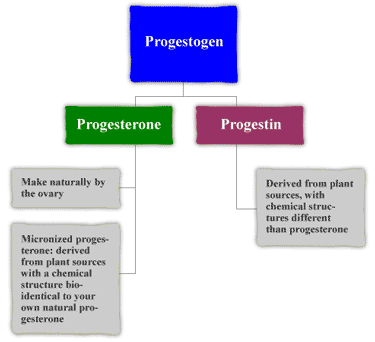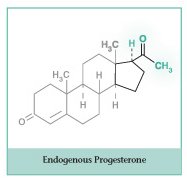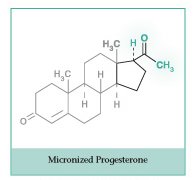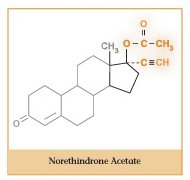 Understanding the Use of Progesterone and Progesterone-Like Hormones
New Survey finds menopausal women are getting educated about estrogens, but unclear about the role of progestogens as part of their treatment options.
MenopauseRx , Inc. surveyed 154 subscribers to gauge their understanding of various treatment options for menopause, specifically the role of progestogens, including prescription, bio-identical and compounded products. Click here for survey background information.
 |
|
Survey Results
Pittsburgh , PA - October 12, 2006 - Aside from the negative findings of the WHI Estrogen/Progestin study, not much is discussed about the role of progestogens (progestin and progesterone) as part of a hormone therapy (HT) regimen. According to the results of a recent survey conducted by MenopauseRx , Inc. - an online resource for menopausal women - 67 percent of respondents did not realize that women may be at risk for uterine cancer if taking estrogen without a progestogen.
"Progestogens play a very important role in the HT mix," said John A. Sunyecz, M.D., F.A.C.O.G, president, MenopauseRx , Inc. "Unfortunately, it is also the most misunderstood class of hormones, not just by women, but by many healthcare providers as well. Approxi mat ely one third of respondents discontinued their progestogen therapy because of the negative news about hormone therapy. It's essential that women taking estrogen who have not had a hysterectomy also use a progestin or progesterone to protect against endometrial hyperplasia, which can cause uterine cancer."
Progestogen is a term used to describe the family of hormones that have actions similar to progesterone in the body. Together, progesterone and progestins are collectively known as progestogens. The important distinction between progestins and progesterone is that progestins are synthetic molecules, while progesterone is identical to the hormone made by the ovary.
MenopauseRx is working to educate women on the role of progestogens so that they can make more educated decisions about man aging their menopause symptoms. "It's encouraging that women are becoming more involved with their healthcare provider in discussing their treatment. According to our survey, about 34 percent made recommendations to their healthcare provider regarding treatment preferences" said Sunyecz. "However, there are still many who do not even understand what is being prescribed and the role of the hormone in their bodies, while others are turning to unproven herbal therapies and alternative products to treat their menopausal symptoms."
MenopauseRx wants women to understand that there is no sufficient evidence to show that over-the-counter progesterone creams provide the same level of endometrial cancer protection as prescription products. Importantly, custom-made (or compounded) options carry the same risks as prescription products and there are no approved guidelines for their use. "I have concerns for my patients about compounded hormone products and their purity, potency and quality", notes Dr. Sunyecz. According to the North American Menopause Society, hormone therapy is still the standard treatment of moderate to severe menopause symptoms. The majority of women surveyed indicated a preference for FDA-approved bio-identical options. There is a progestogen that is bio-identical; Micronized progesterone (PROMETRIUM®) is well tolerated and available with a prescription.
 |
|
Survey Background Information
Progesterone is a hormone made by the ovaries during the menstrual cycle. Fluctuating levels commonly occur during the perimenopause and menopause transition.
There is often confusion surrounding the terminology of this hormone. 'Progestogen' is a term used to describe the family of hormones that have actions similar to progesterone in the body. Together, progesterone and progestins are collectively known as progestogens. Many progestogens are available by prescription and are used during the menopause transition. The important distinction between progestins and progesterone is that progestins are synthetic molecules, while progesterone is identical to the hormone made by the ovaries. |
 |
|



 This chemical structure represents the natural, bio-identical progesterone made by the human ovary.
This chemical structure represents the natural, bio-identical progesterone made by the human ovary.
 This chemical structure represents micronized progesterone...a plant derived hormone available by prescription (Prometrium®). Note the exact structure to natural progesterone.
This chemical structure represents micronized progesterone...a plant derived hormone available by prescription (Prometrium®). Note the exact structure to natural progesterone.
 This chemical structure represents a commonly prescribed progestin (Provera®). Note the structural difference compared to natural progesterone.
This chemical structure represents a commonly prescribed progestin (Provera®). Note the structural difference compared to natural progesterone.
 This chemical structure represents a commonly prescribed progestin (Aygestin®). Note the structural difference compared to natural progesterone.
This chemical structure represents a commonly prescribed progestin (Aygestin®). Note the structural difference compared to natural progesterone.

